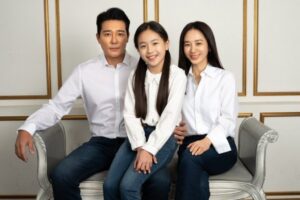
For obvious reasons, divorce is almost always depicted in a bad light. It is the dark flipside of marriage, after all, the unhappy ending of any fairytale romance, so it’s common for stories to center on its doomed quality. In the wildly successful The World of the Married, divorce (along with its twisted cousin infidelity) drives nearly all of the characters mad, while in the pleasanter 18 Again, it is the main obstacle that blocks the female lead from achieving her dreams.
In real life, its reputation may not be all that better, but it certainly is more nuanced. In a 2019 report by the South China Morning Post, writer David Lee said that attitudes towards divorce have been gradually shifting “as women become empowered, and more people experience divorce.” Korea Times’ Bernard Rowan adds that aside from the “growing freedom of women,” this acceptance is also due in part to an increasing sense of Korean individuality. These accounts, among others, place the act closer to what it really is: a willful step towards self-actualization, instead of just a harbinger of doom.
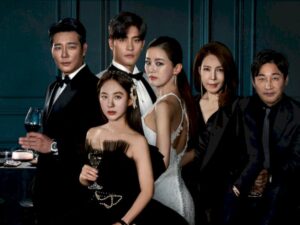
TV Chosun’s Marriage Lyrics and Divorce Music (also known as Love ft. Marriage and Divorce) sat right in the middle of this interesting junction. By focusing on three relationships of different age sets, the show seemed perfectly primed to tell a meatier story about divorce. In fact, the showrunners claimed that it would be a more modern take, adding that it “breaks the mold of past dramas about married couples.”
Unfortunately, Marriage Lyrics and Divorce Music falls short of that promise. Despite its claims, the drama doesn’t offer anything new or meaningful about marriage. The ideals it promotes are outdated and downright offensive, and the show’s only redeeming quality is its potential. What it could have been, that is, a juicy story about how and why love ends, is bogged down by what it actually is: a showcase of disturbing principles, poor characterization, and awkward editing and chemistry.
The characters of Marriage Lyrics are disproportionately but impressively female. It’s filled with the women whom the husbands cheat on and with, the mothers-in-law who keep the spouses in check, and even the precocious daughters who always have a lot to say about their parents. It would seem, then, that the story is bound to employ a more female-centric perspective, one that at least acknowledges the myriad problems women have had to put up with not just in relationships or K-dramas, but in real life as well.
Sadly, that hope disappears as soon as we got to know the characters. Boo Hye-ryung (Lee Ga-ryeong), Sa Pi-young (Park Joo-mi), and Lee Si-eun (Jeon Soo-kyeong) are the show’s female leads, and while they may seem like independent and capable career women, they’re also products of the sexism deeply entrenched in this show. Their accomplishments play second fiddle to their supposed “fatal flaws,” which their husbands try to counteract with mistresses who are their complete opposites.
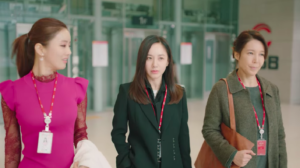
Si-eun is too engrossed with her home and work life to care about sex or appearances, so her husband cheats on her with the interesting and vivacious Nam Ga-bin (Lim Hye-young). Hye-ryung, while also busy with her job, is just too darn invested in her looks to carry out wifely duties (which consists of cooking and cleaning, of course!), so her husband runs off to the motherly Song Won (Lee Min-young). Lastly, with Si-eun’s domesticity and Hye-ryung’s aspirational good looks, Pi-young is just too perfect for her own good, so her husband naturally falls in love with the broken but beautiful A-mi (Song Ji-in).
Now, it’s one thing to expose and call out this cruel double standard, which dramas like When the Camellia Blooms and Something in the Rain have already elegantly done. But it is quite another to believe and promote this double standard, which this drama does by rewarding its male characters for daring to love and punishing its female characters for, well, being their imperfect selves.
Right till the show’s end, the women blame themselves for the downfall of their marriages, while also adjusting accordingly to the whims of the status quo. And any time they try to challenge the cards they’re dealt with, they’re immediately rectified. In-laws correct their radical views, the mistresses sweep in to display the “right” way of being a partner, and if all else fails, more screen time is allotted to the men’s POV to show how off-putting their once young and beautiful wives have become.
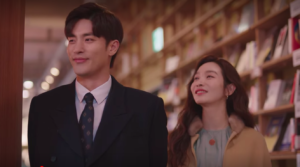
By contrast, men have a lot of agency in Marriage Lyrics. They’re free to explore true love via extramarital affairs, they get little more than a slap in the wrist once exposed, and of course, they get to decide when the marriage is through. The men in this show view divorce as the key to their shackles, while the women see it is as a death blow, even though a study by the Korea Legal Aid Center for Family Relation (KLACFR) found that, in reality, an equal proportion of men and women wish and file for divorce.
There is one female character who is an exception to all this: Kim Dong-mi (Kim Bo-yeon), the stepmother of Pi-young’s husband Yu-sin (Lee Tae-kon). She’s twisted and vengeful, a scorned woman who’s had enough with playing the role of Perfect Wife. But lest audiences start to root for this complicated character, the writers also make her the most objectively problematic person in the show.
Dong-mi, who started raising Yu-sin as her own when she was in her 20s and he was just seven years old, happens to be in love with her stepson (now in his 40s). She admits to only marrying Yu-sin’s father so she can “take better care” of Yu-sin as a child, and Yu-sin confesses that Dong-mi is his first love. Their twisted relationship is framed as a tender romance in the show, and when Pi-young finds out, she isn’t disgusted so much as she’s just worried about what people might think when they find out.
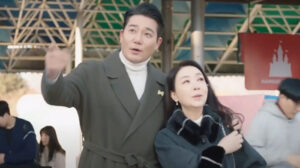
To be clear, it’s okay for dramas to not make sense. Makjangs make for perfectly good entertainment, and the ridiculous lengths K-drama clichés will go to just to make audiences laugh or cry is quite admirable. Alternatively, the anti-hero narrative is always worth exploring. It’s Okay Not to Be Okay, Sky Castle, and many others have long proven that it is possible to strike a balance between good and bad in cases of moral dissonance.
The absurdity becomes unacceptable once it fails to serve the story or its characters in any way anymore, because at that point the show has obviously traded in its soul and responsibility for easy views. When a show goes out of its way to normalize an obvious case of grooming, promote misogynistic views, and inaccurately frame divorce as a win-lose situation, then it becomes quite clear that attention has topped its priority list. It becomes nothing more than a sensationalist trap.
Frankly, the show is painful to watch for other reasons too. It is awkwardly cut and weirdly scored, and for the first eight episodes, the audience is forced to watch the “other women” go about their lives without even knowing who they are (they’re formally introduced in the latter half of the show). The chemistry between the actors is uncomfortable, if not entirely absent, and the monologues go on forever, despite being preachy, static, and fundamentally empty.

Going back to the KLACFR study mentioned above, the researchers said that in recent years, the main cause of divorce in Korea wasn’t really infidelity, despite what dramas will have you believe. Instead, it’s a bunch of reasons “that were once considered as trivial by the older generations, such as personality clashes, basic unhappiness, and incompatibility.”
It’s unfortunate that Marriage Lyrics chose to ignore this reality in order to favor an outdated way of thinking and living. If only it were half as interesting as the data quoted above, and if only it eased up on the sensationalism and actually trusted real-life developments, then maybe it could have broken “the mold of past dramas” like it said it would.
(South China Morning Post, Korea Times, Naver, Korea Herald. Images via Netflix/TV Chosun.)


